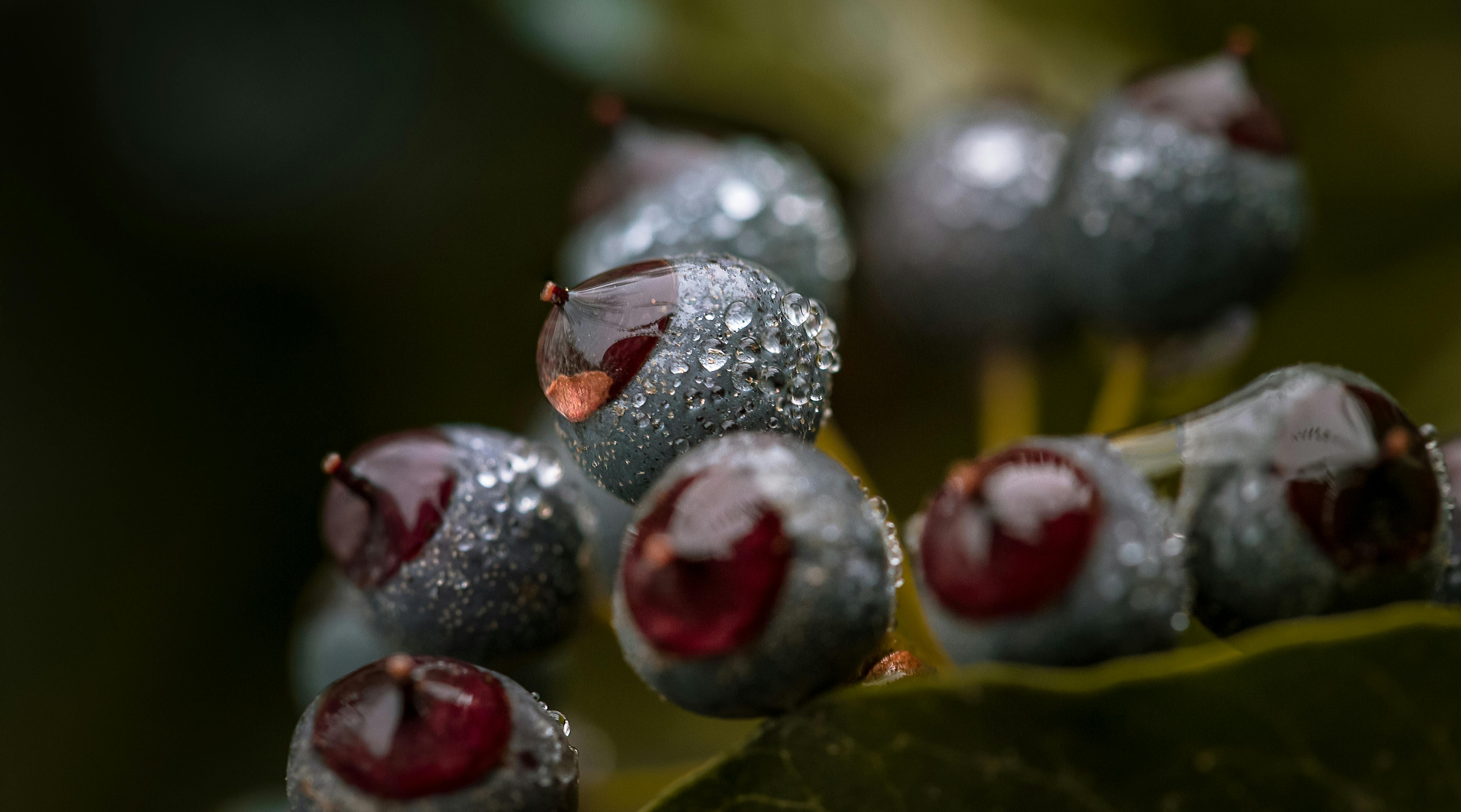Blueberry plants are one of the most popular types of edible fruit-bearing shrubs. These plants need proper care and attention in order to grow and produce healthy fruit. One of the most important aspects of caring for blueberry plants is knowing how often to water them. In this article, we will discuss the best practices for watering blueberry plants, including frequency and amount.Blueberry plants should be watered deeply once or twice a week, depending on the weather conditions. When the top few inches of soil are dry, it’s time to water. During hot and dry weather, blueberry plants may need to be watered three times a week.
How Much Water Do Blueberry Plants Need?
Blueberry plants require a consistent water supply in order to thrive and produce healthy fruit. The amount of water needed for blueberry plants depends on the climate, soil type, and the age of the plant. In general, blueberries require at least one inch of water per week during the growing season, which is typically from April to October. However, during periods of hot weather or drought, additional watering may be required.
The best way to determine how much water your blueberry plants need is to monitor the soil moisture near their roots. If the top inch or two of soil feels dry to the touch, it’s time to water. When watering blueberry plants, make sure that you drench the soil thoroughly so that it penetrates down to a depth of 8-12 inches. It’s also important to avoid wetting the foliage as this can lead to fungal diseases.
If you’re unable to check your soil moisture levels regularly, consider setting up a drip irrigation system or installing soaker hoses around your blueberry plants. This will help ensure that they receive enough water on a regular basis without having to worry about manually watering them each week. It’s also important to mulch around your blueberry plants with organic material such as straw or wood chips in order to help retain moisture in the soil and reduce weed growth.
In summary, blueberries require a consistent supply of water throughout their growing season in order to produce healthy fruit. The amount of water needed may vary depending on climate and soil conditions but should generally be one inch per week. Monitoring your soil moisture levels is an effective way to determine whether additional watering is necessary and setting up an irrigation system can help automate this process for easier maintenance.
Signs of Overwatering Blueberry Plants
Overwatering blueberry plants can cause a variety of problems, including reduced growth, wilting and even death. These signs can be difficult to recognize, as they may be mistaken for symptoms of other issues such as nutrient deficiency or disease. To make sure your blueberry plants are being properly watered, it is important to look out for the following signs:
1. Wilting: One of the most common signs of overwatering is wilting of the leaves and stems. This is usually caused by a lack of oxygen in the soil due to waterlogging. If you notice that your blueberry plants are drooping or their leaves are turning yellow, it could be a sign that they are being overwatered.
2. Root Rot: Another sign of overwatering is root rot, which is caused by a fungus that thrives in wet soil conditions. This fungus will attack the plant’s roots, making them soft and discolored. If you notice any discoloration on your blueberry plant’s roots, it could be a sign that they are being overwatered.
3. Fungal Growth: As mentioned above, overwatering can lead to an increase in fungal growth on the plant’s leaves and stems. If you notice any white or grey spots on your plants’ leaves or stems, it could be a sign that they are being overwatered.
4. Poor Growth: Overwatering can also lead to poor growth in your blueberry plants due to lack of oxygen in the soil and inhibited root development. If you notice that your blueberry plants are not growing as they should be or if their growth has slowed down significantly, it could be a sign that they are being overwatered.
The Benefits of Watering Blueberry Plants
Watering blueberry plants is essential for their health and productivity. Properly watering blueberries helps them to grow vigorously and produce large, flavorful berries. Blueberry plants need consistent moisture throughout the growing season, and regular watering is one of the most important factors for achieving this. Here are some of the key benefits of watering blueberry plants:
Promotes Growth
Regular watering ensures that blueberry plants have adequate water to support their growth. This encourages the plants to produce larger, more vigorous stems and foliage, resulting in a greater yield of berries at harvest time. Properly watered plants also tend to be more disease-resistant.
Improves Fruit Quality
When blueberry plants are properly watered, they produce larger and sweeter fruit that has a higher sugar content. This not only improves flavor, but it also helps with shelf life since well-watered fruit will last longer than fruit that has been grown with insufficient water.
Reduces Stress
Blueberry plants are very sensitive to drought stress, which can damage or even kill them if left unchecked. By providing regular water during dry periods or when there’s inadequate rainfall, you can help reduce this stress on your plants and ensure they remain healthy.
Watering your blueberry plants correctly is essential for their health and productivity. Properly watered blueberries will be larger, sweeter, and more disease-resistant than those grown with insufficient water. Not only does this improve fruit quality but it also reduces stress on the plant itself by providing consistent moisture throughout the growing season.
Watering Blueberry Plants
Water is essential for blueberry plants to flourish and produce the best berries. Proper watering, however, is key as too much or too little water can cause damage or even death of the plant. To ensure that your blueberry plant receives the best care, it is important to understand the ideal time of day to water it.
Morning Watering
The best time of day to water a blueberry plant is in the morning. During this time, the soil will still be cool from the previous night and can absorb more moisture. This will also give your plants enough time to dry off during the day which helps reduce disease risks. Additionally, watering in the morning allows your plants to take advantage of cooler temperatures and less wind which helps keep their foliage healthy.
Evening Watering
If you are unable to water your blueberry plants in the morning due to work or other commitments, then evening watering is an acceptable alternative. Evening watering gives the soil time to absorb moisture and cool down overnight so that it doesn’t evaporate away during the day. However, you should avoid late night watering as this can encourage fungal disease growth due to higher humidity levels at night.
Frequent Watering
Blueberry plants typically require frequent watering throughout their growing season. Depending on your climate, this may require daily or every other day watering during hot summer months. It’s important to check your soil for moisture levels before deciding when and how much water your plants need each day. During periods of drought or prolonged dry weather, supplement irrigation may be necessary to maintain healthy growth in your blueberry plants.

How Can You Tell When Blueberry Plants Need Water?
Knowing when to water your blueberry plants is important for ensuring healthy growth and yields. The most reliable way to tell if blueberry plants need water is to check the soil moisture level. Stick your finger in the soil about 2 inches deep and feel for dampness. If it feels dry, it’s time to water. Monitor the soil moisture level regularly, as blueberry plants need consistent watering throughout the season to ensure healthy growth.
Another way to tell if your blueberry plants need water is by looking at the leaves. If they are starting to wilt or look dry, this could be a sign that the plant needs more water. Additionally, if you notice leaf edges turning brown or yellow, this could be a sign of dehydration or nutrient deficiency caused by inadequate watering.
Finally, look for signs of wilting in new shoots or buds which can indicate dehydration due to lack of adequate watering. Wilting will cause new shoots and buds to become limp and lose their shape. If you notice any of these signs, it’s a good idea to give your plants a thorough watering right away.
What Type of Soil Is Best for Blueberry Plants?
The best soil for blueberry plants is acidic, well-drained, and contains plenty of organic matter. Blueberries prefer a soil pH between 4.0 and 5.5, and they can tolerate a range of 4.0 to 6.5. Sandy loam soils are ideal for blueberries, as they allow for good drainage but still contain enough organic matter to support plant growth. Adding compost or peat moss to the soil will help improve the texture and provide additional nutrients for the plants. Additionally, adding sulfur to the soil can help lower its pH levels if it is too high for blueberry plants.
Watering Needs
Blueberry plants require regular watering in order to produce healthy fruits and prevent them from drying out. During the spring months when new growth begins, water your blueberry plants at least once a week during dry periods to ensure that the soil stays moist but not waterlogged. In hotter months, you may need to water more frequently in order to keep the soil moist enough for growth and fruit production. Additionally, mulching around your blueberry plants can help reduce evaporation and keep moisture in the soil longer.
Potential Problems If You Don’t Water Blueberry Plants Enough
When it comes to blueberry plants, proper watering is essential for optimal health and growth. Without adequate water, blueberry plants can suffer from a variety of issues, including wilting leaves, stunted growth, and decreased fruit production. Additionally, plants that are not watered regularly are more susceptible to disease and pests. Furthermore, insufficient watering can cause the soil to become hydrophobic in which water runs off rather than being absorbed by the roots. This can lead to root rot as well as deficiencies in nutrients that are essential for healthy plant growth.
Inadequate watering can also cause the pH level of the soil to become unbalanced. Blueberry plants prefer acidic soils with low pH levels. If the pH level is not monitored regularly and adjusted when necessary, it can have a negative effect on plant health and fruit production. Additionally, improper watering can create air pockets in the soil that prevent roots from receiving oxygen, leading to further stress on the plant.
Overall, it is important to ensure that blueberry plants receive enough water on a regular basis in order to avoid potential problems associated with inadequate watering. By providing adequate moisture and monitoring soil pH levels regularly, you will be able to maintain healthy blueberry plants that will produce high-quality fruit for years to come.

Conclusion
Watering blueberry plants is essential for their health and growth. The frequency of watering will depend on the weather, soil type, and season. During periods of hot, dry weather, blueberry plants should be watered deeply once a week. During cooler months, watering can be reduced to every other week or even once a month. Soil moisture should also be monitored regularly to ensure optimal levels for healthy plant growth. Proper irrigation practices are important to ensure that blueberry plants are well-hydrated and productive.
When it comes to watering blueberry plants, it’s important to keep in mind that too much water can be just as detrimental as too little water. Over-watering can lead to root rot and nutrient deficiencies, so it is important to find the balance between adequate moisture and drainage. With the right amount of water and proper irrigation techniques, you’ll have healthy and productive blueberry plants in no time at all.



